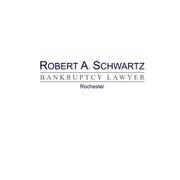
If you’re facing financial troubles, filing for bankruptcy will often provide a much-needed clean slate. However, many people want to have this option as a last resort. If you’re looking for alternative solutions for debt relief, here are a few of your options.
4 Ways to Eliminate Debt Without Declaring Bankruptcy
1. Debt Settlement
This is when creditors accept partial payments in exchange for total debt forgiveness. This approach allows you to pay less than you owe. However, it will increase your tax burden at the end of the year because the forgiven debt is considered income. In addition to paying the income tax on the savings, debt settlement often will require you to make a lump sum payment to the creditor which you may not be able to do. If you are eligible to file Bankruptcy, you will be presumed insolvent and you will not have to pay income tax on the debt which is discharged in your Bankruptcy.
2. Asset Liquidation
Depending on the total balance you owe, liquidating various assets could yield enough funds to pay it off. While you aren't expected to sell the possessions you use every day, this requires liquidating valuable collections, like artwork or jewelry. This allows you to decide what you want to sell or give away. This would definitely make sense if the value of your assets were so substantial that they would not be exempt from your creditors in Bankruptcy. Most people considering Bankruptcy are not fortunate enough to have those substantial assets.
3. Loan Consolidation
 Consolidating multiple, high-interest debts into a single, low-interest loan may make paying down various balances a lot more manageable.
Consolidating multiple, high-interest debts into a single, low-interest loan may make paying down various balances a lot more manageable.
This approach is typically only an option for those who have good credit scores, however. If you don’t, you won’t qualify for a personal loan with a low interest rate. Chapter 13 Bankruptcy will allow you to pay all your unsecured debt with interest at ZERO %. You may also only be required to pay a percentage of the principal owed. If you are able to pay some amount to your creditors Chapter 13 may be the best solution. After 5 years of payments, any balance still owing will be discharged.
4. Budgeting
Sometimes, the best way to pay off debt is simply to stick to a strict budget.
To do this, start by adding up your costs for housing, utilities, food, clothing, uncovered medical expenses, insurance, transportation ( including cat payments, gas and vehicle maintenance), health insurance, and any other required regular expenses. Then subtract that total from your monthly net income. If there is a surplus use it to pay your debts. If there is not enough to pay all your creditors, you may want to think about Chapter 13. If you have no money left over you should consider Chapter 7.
For help with debt relief, turn to Robert A. Schwartz. Practicing out of the Rochester, NY, metropolitan area, this bankruptcy attorney has more than 30 years of experience helping clients discharge their debts. He’ll analyze your situation to help you decide which option is best for your needs. Learn more about what he does online or call (585) 334-4270 to request a free bankruptcy evaluation.
About the Business
Have a question? Ask the experts!
Send your question

